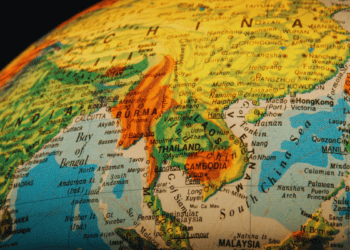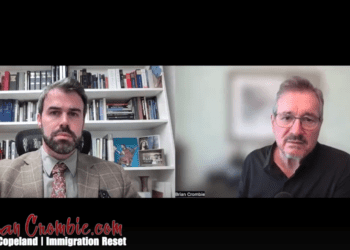March 21, 2013 – In his latest column for The Globe and Mail, MLI’s Brian Lee Crowley writes about the upcoming budget and says Ottawa needs more tough love with the provinces. Read his latest column below.
Ottawa needs more tough love with the provinces
By Brian Lee Crowley, The Globe and Mail, March 21, 2013
Thursday is budget day. A perfect day to recall what used to be a bedrock principle of Canadian federalism that, alas, started to be forgotten around 1960 and by the 1970s had been completely turned on its head, at great cost to taxpayers and the federation.
That principle? Ottawa should not tax Canadians and give that money to the provinces to spend.
Because those who do not know their history are condemned to repeat it, this claim will appear preposterous. Hasn’t it always been the role of Ottawa to use transfers to entice provinces into programs those narrow-minded provincials might not otherwise embrace?
No. The greatest Liberal prime minister, Sir Wilfrid Laurier, said in 1887: “It is an entirely false principle according to which one government collects revenues and another government spends them. This must always lead to extravagance.” His successor and longest-serving PM in Canadian history, Mackenzie King, argued that “it [is] a pernicious principle to have one government collect taxes and another government spend them.”
Laurier? King? To many Canadians I might as well be talking about Pericles or Confucius. But the advisability of Ottawa giving money to the provinces is just as live an issue today as it was then. And most importantly, the evidence shows these dead white guys were right.
Take the example of the Chrétien-Martin fiscal reforms of the 1990s. One of the cornerstones of those reforms was to cut transfers to the provinces. The cuts’ opponents, led chiefly by the provinces themselves (fancy that!), have succeeded through the Great Lie technique in convincing many that such “downloading” was a disaster never to be repeated.
The current government, wishing to distinguish itself from its predecessor, has taken up the cry of no cuts to provincial transfers, despite the fact that Ottawa is trying to balance its budget and its own policy means that the roughly $67-billion worth of transfers cannot make a contribution to eliminating the deficit.
That’s too bad because downloading gets a bad rap, and was actually highly constructive. Take one example. Under the old dispensation, Ottawa gave money to the provinces for social welfare. Unfortunately, the conditions Ottawa attached to the money contributed to a badly-designed system that saw the number of Canadians on welfare rise during recessions, but never fall during upturns. It was an up escalator, not a roller coaster.
By the time Paul Martin was taking an axe to the deficit, about one in every 10 Canadians was on welfare. Then he said two things to the provinces. First, you’re getting less money from us. Second, we’re giving you more freedom. You now make the welfare rules.
Turns out that one of the unintended consequences was to unleash a wave of provincial experimentation with welfare reform, because now the provinces knew they couldn’t look to Ottawa to underwrite costly systems that trapped millions on benefits. The result: The number of welfare recipients fell by half while the number of people living in poverty declined by 40 per cent, as they re-entered the work force and thus were able to climb the ladder of prosperity.
Paul Martin thus inadvertently proved Laurier and King right. Democracy works best when the government that gets the pleasure of spending should also face the pain of the corresponding taxation. Among other things, it makes them anxious to get full value for every dollar spent.
And if welfare reform is anything to go by, we won’t get real health care reform, for instance, until Ottawa cuts its transfers and frees the provinces to experiment in that field too, making provincial politicians face the full consequences of their unsustainable policy choices.
Fortunately, if media reports are correct, Ottawa may take one positive step today, reclaiming the nearly $2-billion it has been giving the provinces for worker training and apprenticeships. While I remain skeptical that it will happen, I would be delighted if reports are true that federal vouchers given directly to workers will take their place. Laurier and King would have approved.
They would also not have been surprised to learn that the provinces waste a lot of that money today. Provinces refuse to release the existing audits of how the money is spent and what it achieves. If they reflected credit on the provinces’ stewardship, they would be on the front page of every newspaper in the country.
Traditionally, federal governments come to power defending the provinces’ virtues against Ottawa’s depredations. But they govern most successfully when they shed those illusions and speak for Canada. We’re about to find out if the Tories have reached that critical turning point.
Brian Lee Crowley is the managing director of the Macdonald-Laurier Institute, an independent non-partisan public policy think tank in Ottawa: www.macdonaldlaurier.ca.
—




